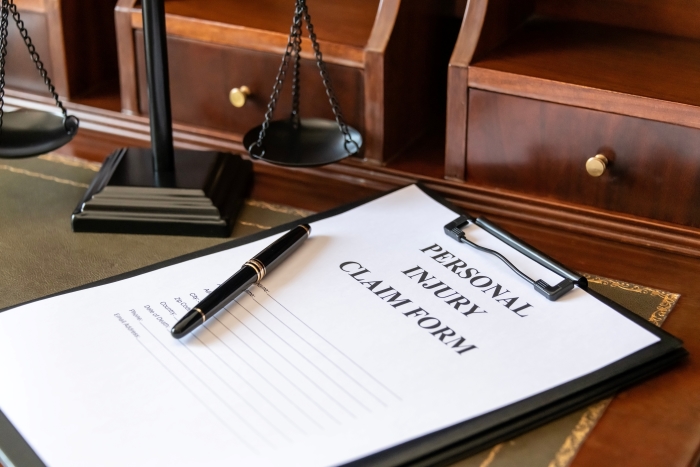The Art of Countering a Settlement Offer
Negotiation is truly an art. Some people seem to be born with a talent for negotiation, but for the rest of us, it can be learned. In countering a settlement offer, some of the best tips are:
- Know your value - keep records of the medical bills, lost wages and other costs that you have incurred due to your injury so that you know how much you are owed.
- Gather evidence like police reports, witness statements and photos that you may need to prove your case.
- Realize that the first settlement offer is rarely fair and be prepared to negotiate.
- Communicate with persistence and effectiveness - respond to any communication concisely and have the proof to back up your statements if necessary.
- Consult a personal injury attorney so that you know your rights and you have an experienced navigator in the negotiation process.
Reasons to Counter a Personal Injury Settlement
There are a myriad of reasons to counter a settlement offer. Often the initial settlement offer arrives before medical treatment has been completed, so that you do not know the full extent of your damages. Sometimes the settlement is not enough to compensate you for your losses or does not cover possible future losses.
Some settlements include clauses that are not in your best interest. Often settlements include complex terminology, meant to overwhelm or intimidate you into accepting. You should always contact a personal injury attorney before accepting any settlement offers.
Insufficient Compensation
One excellent reason to counter a settlement offer is insufficient compensation, whether in the form of a generally low offer that by no means covers your expenses or in the form of an early offer made before your medical treatment is complete and too early to determine damages.
These offers can seem like a lot of money, especially if you are out of work and struggling to make ends meet, but you should be careful not to settle for less than you owe or deserve. Keeping track of all of your expenses helps to avoid accepting these “low ball” offers.
Unforeseen Expenses
Injuries can come with a variety of unforeseen expenses that are often not included in your initial settlement offer. If your injury keeps you from working for an unforeseeable amount of time, it is difficult to establish the extent of the damages that you will suffer over this time. Living expenses continue to add up while you are recovering from an injury.
Another expense that can be difficult to determine is rehabilitation, as that can go on for months or even years. Partial or total disability caused by the accident is an expense that is even harder to measure. Serious injuries can incur costs that last a lifetime. In these cases, a personal injury attorney can prove immensely helpful.
Hidden Clauses
Settlement offers are often long documents with complex wording which can effectively hide unfavorable clauses from the inexperienced individuals. If for no other reason, this is a strong reason to have an experienced personal injury attorney looking out for your best interest.
Negotiation Strategies
Negotiation for a personal injury settlement can be broken down into a few general objectives:
- Know your value
- Collect your evidence
- Be ready to counter
- Be willing to walk away
- Know when it’s more than you can handle
Understand Your Case Value
Know your value. Be thorough in keeping track of all expenses and lost income that you have suffered because of your injury. These are known as measurable damages. Collect medical bills and receipts that prove your losses and even record notes with them explaining how each expense is connected to your injury.
Show proof from your employer of lost wages due to the accident and subsequent medical treatments. Keep records of travel for medical treatment and other expenses tied to your injury. When negotiation begins, know the total of your measurable damages and be prepared to prove and defend it.
Gather Evidence
Gather evidence concerning your case. It is your responsibility to prove that the other party was negligent and that his or her negligence directly caused your injury. In order to do this, you will need evidence like the police accident report, medical records, eye witness statements and photos of the scene. By gathering contact information from everyone at the scene of the accident, you will be able to contact witnesses for their statements. Photos and videos should be taken at the scene of the accident as well.
You should also ask the officer at the scene when and where your accident report will be available. Any medical records should be available, usually at a small cost, from the medical facility where the treatment was provided.
Additionally, you should have a copy of your own auto insurance policy in case it comes into question. Having a complete and thoroughly documented evidence file will strengthen your case immensely.
Present a Counteroffer Based on Evidence
When you present a counteroffer, you will want to explicitly state that you are rejecting their settlement offer and explain your reasoning for this. Whatever reasoning you use, cite your evidence as proof of the legitimacy of your reasoning.
For example, if you are rejecting the offer due to a low offer, cite each expense that you incurred and have the records to back it up. If you are rejecting because of their insinuation that you are at some fault, you could refer to your police accident report and eye witness statements. Let them know that you can and will provide proof to back up your claim, if necessary.
Be Prepared to Walk Away
As you are closing your counteroffer, give a time frame in which they should respond. And be very clear that if a satisfactory settlement is not reached, you will be filing a lawsuit. Settlement is not always a viable option.
Put it in writing that you are not afraid to walk away and be willing to back that up. Be prepared to walk away from the settlement process, contact an attorney and go to a courtroom instead.
Know When It’s Time to Consult an Attorney
Any point in this process is a good time to consult an attorney, particularly as a first step. However, if you have reached the “walk away” point, it is imperative that you contact an experienced personal injury attorney who can advise you on what to do next. Don’t lose your settlement entirely because of lack of professional guidance.
It is better to be honest with yourself and admit that you have exhausted all of your resources and you need to bring in someone with more experience and knowledge in this area rather than accepting a low-ball settlement or nothing at all. Contact Hagelgans & Veronis today to schedule your free consultation.
Hagelgans & Veronis: Your Pennsylvania Personal Injury Advocates
Have you been injured in Pennsylvania due to someone else's negligence? Don't wait to get the legal help you deserve. Hagelgans & Veronis is here for you. Our experienced personal injury attorneys in Lancaster and York can fight for the compensation you need to cover medical bills, lost wages, and other damages.
Contact us today for a free consultation. We win when you win, and you pay no fees unless we recover for you. Let Hagelgans & Veronis be your Pennsylvania personal injury advocates.








